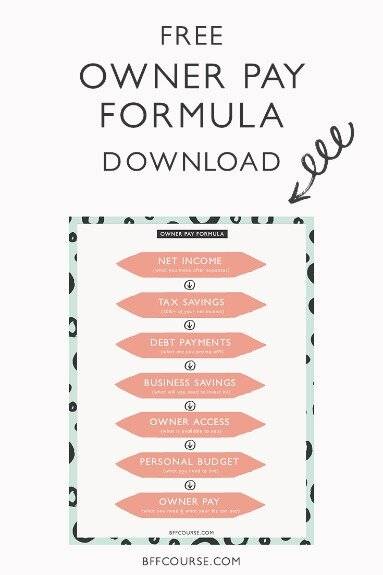One of the easier cloud accounting interfaces to navigate, ZipBooks allows you to create records for contacts and items, send invoices, track time, projects, and tasks. With no trace of their branding on your invoices, Wave enables you to create the most engaging invoices and use the tool to run multiple businesses under one account with an unlimited number of users for free. The most cost-effective and time-efficient way of handling accounting is picking the right cloud-based accounting software. With Trolley you can maintain liquidity while at the same time ensuring on-time payments. This software easily integrates with various accounting, ecommerce, project management, CRM, and other apps that can lead to enhanced workflows. You’ll have total control over how much financial information other people—from your employees to your accountant to an outsourced team—will be able to see by customizing their access.
- Without granular visibility into your finances, you can’t lead effectively, budget optimally, or devise subscription strategies.
- Our comprehensive guide includes the best cloud-based accounting software for both small businesses with a few monthly transactions and large enterprises that handle hundreds of invoices.
- Top features for every plan include the ability to create and send invoices, track time and project profitability, claim expenses, bulk reconcile transactions and accept multiple currencies.
- No matter how big or small your needs are, it’ll always find a way to fit them.
- It automates key accounting workflows, including expense tracking, invoice management, and bank reconciliation.
Zoho Books offers a free plan for businesses with revenue of under 50K per annum. Keep track of your inventory, setting reorder points and replenishing stock, and organizing SKU, cost, stock on hand, and more. QuickBooks Online easily integrates with other Intuit applications and other third-party applications such as Shopify and Paypal. To extend the software’s functionalities you may use QuickBooks with Bill.com, Method CRM, and other apps. You’ll have a detailed log of all of your expenses, as well as all of the receipts you need to back them up. That’ll be especially helpful when tax time rolls around and you need to categorize your write-offs.
Time tracking is essential for many activities, such as paying hourly employees and charging clients on a per hour basis. Cloud accounting software should include native time tracking capabilities as well as integration with popular time tracking services like Clockify and Harvest. QuickBooks cloud accounting software provides automatic software updates and there are no big spikes in costs when your business expands. Tipalti Approve is an end-to-end procurement to payment solution software for mid-sized businesses.
Legacy SaaS accounting: ready for a financial blindfold?
Sage was designed for solo business owners, freelancers and sole proprietors who want easy-to-use affordable accounting software without all the features of more complex platforms. Another advantage of cloud-based accounting software is that it can be accessed from anywhere. Cloud-based accounting software is a type of financial management program that runs on the cloud instead of on your computer’s hard drive. Accounting software can improve productivity by automating time-consuming tasks, such as invoicing and tracking payments. Plus, software can help keep your books in compliance, which can save you time and money in the long run. Despite these challenges, accounting software can be a valuable tool for businesses of all sizes.
The document management tool offers advanced search and accessibility features while at the same time securing all your data. FreshBooks streamlines client invoicing and time-tracking processes and offers a powerful set of features for growing businesses. Even freelancing professionals that do not have an accounting background can easily deploy the software. NetSuite ERP automatically eliminates duplicate data entry, thus increasing the accuracy of your data. Your access to real-time information and metrics provide you with more insights as you manage your day-to-day operations. As you work to speed up financial reconciliations, NetSuite ERP ensures that all your transactions comply with accounting standards.

Cloud accounting software should include multiple reporting templates to choose from and automatically populate whichever one you pick with data pulled from other areas of the software. Besides pricing, there are many different features to consider when trying to decide on the best cloud accounting software for your needs. With Xero, you can also track your projects, from providing estimates to invoicing. The contact management feature allows you to manage your contacts and accounting processes in one platform. For accountants and bookkeepers, Xero offers customized solutions such as the Xero HQ for the management of clients and staff, Xero Cashbook, and Xero Ledger.
Benefits of Cloud-Based Accounting Solutions
Ramp is worth considering for accounting teams seeking a centralized platform to handle all types of business expenses. Its suite of features, including automated bill pay, receipt integration, and expense reporting, simplifies expense tracking and analysis for finance teams. Additionally, Ramp lets businesses issue unlimited physical and virtual cards to employees to manage all expenses from one place.
- All of your accounting data was on that now missing laptop, and you can’t even remember the last time you backed that up.
- You can get started instantly and connect your bank account to see all your transactions automatically appear in your bookkeeping without entering receipts manually.
- ZarMoney isn’t just another accounting software; it’s a customizable powerhouse built for businesses that need flexibility and precision.
- The whole point of having an accounting tool is to take the burden off your team.
- With no trace of their branding on your invoices, Wave enables you to create the most engaging invoices and use the tool to run multiple businesses under one account with an unlimited number of users for free.
You can create and send invoices, track expenses, manage projects and clients, and view reports. Besides its primary plans, it also offers a custom plan with custom pricing for businesses with complex needs. Zoho Books is an accounting solution that automates accounts payable and receivable, time tracking, payroll, and transaction management. It lets you create client profiles to set up automated billing and invoicing workflows.
How Do You Choose Cloud Accounting Software?
Another outstanding feature is the fact an unlimited number of users can be added. Accounting software streamlines the bookkeeping process, making it easier for business owners to keep tabs on finances and plan for tax season. For freelancers and small businesses, this is often a more cost-effective option than employing a full-service accounting agency. Business owners looking for an accounting software platform would be the balance sheet wise to select a cloud-based system. Software that uses remote servers to host data help ensure that sensitive financial information is securely encrypted to keep it out of the hands of cybercriminals and backed up to the cloud automatically to not lose any information. To help you find the best cloud accounting software, Forbes Advisor has compiled a list of our top picks based on pricing, features, support and more.

Its Sage Accounting plan normally costs $25 per month, but it offers 70% off your first six months, so you end up paying $7.50 per month. This comes with unlimited users, quotes, estimates, cash flow forecasts, purchase invoice management and automatically snap and post receipts for free for the first three months. Sage Business Cloud Accounting is a good choice for micro-businesses because it offers a variety of features and integrations, yet is still relatively affordable. The software starts at $10 per month for its Sage Accounting Start plan and includes basic features such as invoice creation, automatic bank reconciliation and you can track what you’re owed. Cloud-based accounting software is based in the “cloud” rather than installed on your desktop or manually maintained in ledgers and journals. The software for cloud accounting is hosted on a remote server instead of a server on your business’ premises.
How can I learn how to use accounting software?
It provides simple and customizable procurement processes that cover purchase requests, purchase orders, approval flows, and vendor onboarding. The simple UI of Tipalti Approve is well-designed and allows procurement and finance teams to easily access transaction details and other data in one platform. Airbase provides real-time transaction visibility which is highly valued by users. Because transactions display instantly on the platform, the process of managing expenses is expedited, and the annoyance of misplacing transaction data is reduced.
FreshBooks: Best for invoicing and payment acceptance
This drives up job flexibility and gives your team the freedom to work wherever they are. More flexibility at work not only makes your employees happy but also improves work productivity. Need Xero to do more for you, like bulk reconciliation, in-depth analytics, and the ability to track projects? To keep your business up and running, you need to maintain cordial relationships with your vendors and pay them on time. You get to manage every aspect of your depreciating and non-depreciating assets throughout their lifecycle. This is a more convenient way to keep track of billable hours compared to a manual clock-in and out system.
This can save you a significant amount of money over time, especially if you have multiple employees who need to use the software. Activity tracking allows you to monitor user actions, including transaction modifications, sensitive data access, and configuration changes. By understanding an accounting app’s activity logging and auditing functions, you can enhance data security and ensure compliance with accounting regulations. This operational transparency also helps your accounting team detect anomalies, investigate suspicious activity, and prevent unauthorized changes to financial data, preventing fraud or accounting errors. Businesses with high inventory volumes can use ProfitBooks to control spending and prevent unexpected expenses. Its purchase order management dashboard helps plan and record inventory expenditures in advance through purchase orders.

